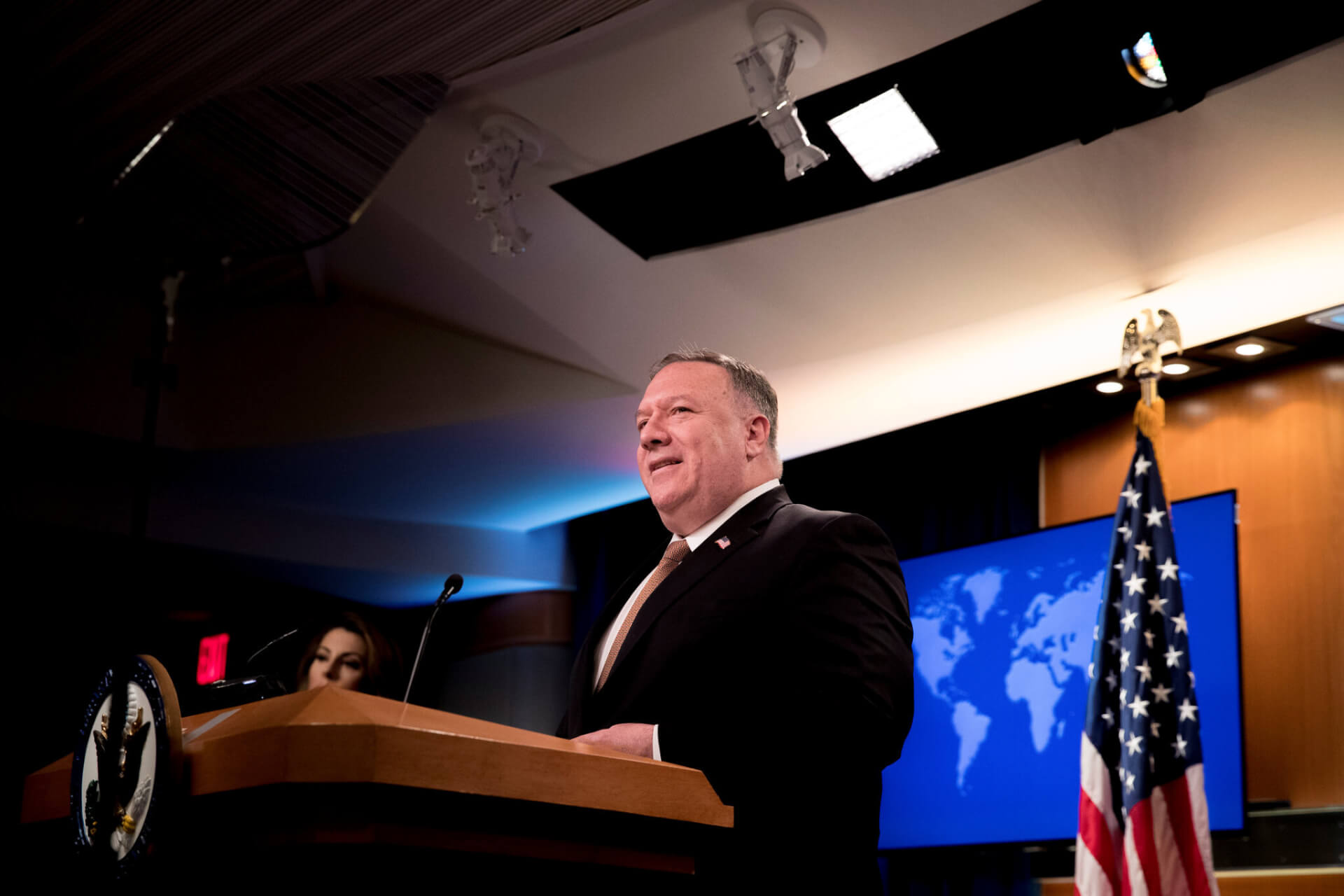US Secretary of State Mike Pompeo on Thursday argued for the redefining of US global human rights advocacy based on the principals laid out by America’s Founding Fathers, a suggestion critics fear will mean a step back for more modern concepts such as the rights of women and LGBTQ communities across the globe.
Pompeo made the remarks at a draft report launch by the Commission on Unalienable Rights. The commission was established last year by Pompeo to review US human rights policy, which at the time he said had “lost its bearings.” At the event, Pompeo criticized the “proliferation” of protections in international agreements and claimed that it diluted more important principles, such as property rights and religious freedom. Pompeo said, “We are forced to grapple with tough choices about which rights to promote and how to think about this. Americans have not only unalienable rights, but also positive rights granted by governments, courts, and multilateral bodies. Many are worth defending in light of our founding; others aren’t.”
Though he did not openly state which rights he thought were dispensable, Pompeo’s State Department and the entire Trump administration have shown strong resistance to references to reproductive and gender rights at the UN and other multilateral institutions. The document said that the authors could not comment on the application of human rights standards to issues like “abortion, affirmative action, and capital punishment,” among others, and concluded that “the United States should be open to, but cautious in, endorsing new claims of human rights.”
The presentation drew immediate criticism from human rights experts and lawmakers for seeking to establish a hierarchy of human rights in which some were more important than others. Sen. Bob Menendez said that America’s credibility as a champion of human rights would be jeopardized if it narrowed the scope of who deserves protection. Rob Berschinski from Human Rights First labeled the commission an “unnecessary political exercise” that aims to provide “intellectual cover to an effort to recast American foreign policy in the mold of Pompeo’s personal religious and political views”.
In his statement, Pompeo acknowledged US’ historical failings, including slavery and the dispossession of Native Americans, but argued that those wrongs had been rectified. He also criticized demonstrators for “pulling down statues” and “desecrating monuments”, labeling their actions as an attack on the people who fought for the rights laid out in the Declaration of Independence. “America is fundamentally good and has much to offer the world because our founders recognized the existence of God-given unalienable rights and designed a durable system to protect them,” he said. “But these days I must say even saying America is fundamentally good has become controversial.”
It is not just human rights that are under threat from the Trump administration, but also environmental protection. On Wednesday, President Donald Trump announced severe alterations to the country’s landmark National Environmental Policy Act (NEPA), which would allow more federal projects like pipelines, highways, and power plants to be approved with minimal oversight. The law, which was signed by President Nixon 50 years ago, is considered to be the bedrock of environmental safeguards in the US and requires government agencies to consider the impacts of large infrastructure projects on the surrounding environment by consulting with the local populations before they get the green light.
With Trump’s modifications, fewer projects will be subject to NEPA review, thereby speeding up the approval and permit processes for such constructions. Environmental groups have warned that the rollback would allow industries to more easily pollute communities and limit local inputs into such projects. The move will likely be challenged in court, and comes before the November election. Former Vice President and presumptive Democratic presidential nominee Joe Biden recently unveiled a $2 trillion climate change plan and has vowed to reverse Trump’s policies that contribute to the detriment of the environment.
Image Source: The New York Times
Pompeo Says the US Should Be Selective in the Human Rights It Defends
The Secretary of State singled out property rights and religious freedom as most crucial.
July 17, 2020

